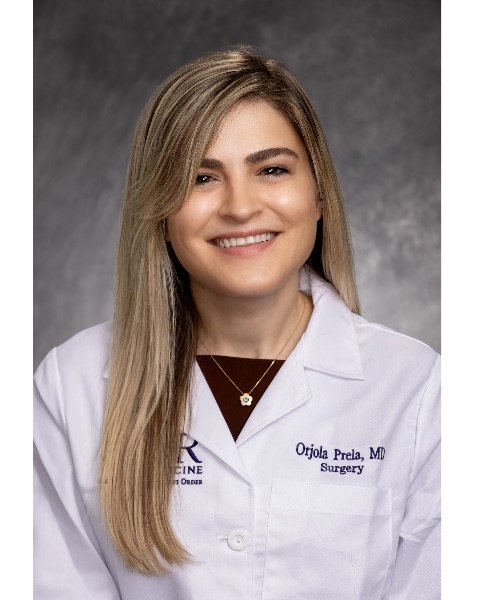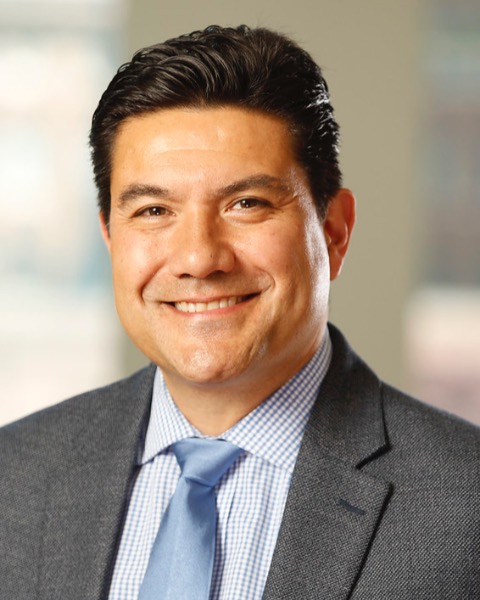Hepato-pancreato-biliary
E246: A Novel Model of Resectable Pancreatic Cancer Reveals Circadian Rhythm Genes Dec2 and BMAL1 as Novel Therapeutic Targets to Increase Survival by Immune Activation

Orjola Prela, MD
Resident Physician
University of Rochester
Rochester, New York, United States
Orjola Prela, MD
Resident Physician
University of Rochester
Rochester, New York, United States
Orjola Prela, MD
Resident Physician
University of Rochester
Rochester, New York, United States- LW
Lan Wang, MS
Graduate Student
University of Rochester, United States - CH
Chris Harris, PhD (he/him/his)
Research Assistant Professor
University of Rochester, United States 
Darren R. Carpizo, MD, PhD
Professor and Chief, Division of Surgical Oncology
University of Rochester
Rochester, New York, United States
ePoster Abstract Author(s)
Submitter(s)
Author(s)
Patients undergoing curative intent surgery for pancreatic adenocarcinoma virtually all die of metastatic recurrence and this is only minimally impacted by adjuvant chemotherapy. The mechanisms of this recurrence remain poorly understood in part because there are no animal models of PDAC that recapitulate the biology of the resected patient. PDAC is a notoriously immunologically cold tumor type and strategies to reverse its immunosuppression are needed.
Methods:
We constructed a model of resectable PDAC that mimics the oncologic outcomes of resected patients in terms of overall survival as well as recurrence frequencies and locations. We separated the mice into early and latent recurrent groups and that also mimicked the outcomes seen in early and latent recurrent patients. We focused on the latent recurrent group as this group developed metastatic recurrence after a long period of appearing clinically well indicating that these animals harbored dormant disseminated tumor cells. We transcriptomically profiled these dormant tumor cells and identified the circadian rhythm gene Dec2 as significantly upregulated in dormant tumor cells. Dec2’s role to survival and metastasis was evaluated by gene knockout.
Results: Deletion of Dec2 from the tumor cells surprisingly nearly eliminated tumor recurrence and improved survival. Further mechanistic experiments using immunodeficient mice and CD4/CD8 antibody depleted mice revealed that the improvement in survival was due to an immune mediated mechanism. We found that loss of Dec2 led to a profound increase in cell surface MHCI expression. The mechanism of this was due to Dec2’s role in regulating proteasomal activity as a means of controlling the production of antigens coupled to MHCI. Loss of Dec2 resulted in greatly reduced primary and metastatic tumor growth. To determine if this function of Dec2 was through its role as a circadian rhythm gene, we deleted the CLOCK master regulator Bmal1 and found that this phenocopied the effects of Dec2 deletion. Loss of Bmal1 resulted in a striking inhibition of primary and metastatic tumor growth, increased cell surface MHCI expression and increased proteasomal activity.
Conclusions: Using a novel model of resectable PDAC, we identified two circadian rhythm genes that regulated cell surface MHCI and if targeted can reverse the immunologically cold immune microenvironment through immune activation to decrease recurrence and survival.
Learning Objectives:
- Union completion, participants will be able to explain the potential link between circadian rhythm gene disruption and pancreatic cancer outcomes in experimental models.
- Upon completion, participants will be able to identify a link between circadian rhythm genes and immune response in pancreatic cancer preclinical models.
- Upon completion, participants will be able to understand potential therapeutic targets for intervention in pancreatic cancer.
